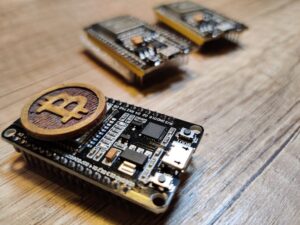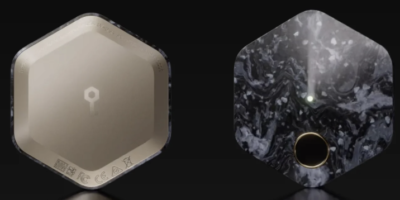
In the most recent update, Grayscale’s Bitcoin Trust (GBTC) experienced a decrease of 4,461.36 bitcoin, valued…
You're reading
Posted at September 5, 2023 | Post by Victor Rollman
Micro $3 Bitcoin miners won’t make bank, but that’s not the point: Inventors

The creators of miniature $3 Bitcoin miners emphasize that these tiny devices, although not financially lucrative, represent a stance against the Bitcoin mining industry’s perceived issues of secrecy and exclusivity. These pocket-sized Bitcoin miners, often open-source and easily portable, cater to a specific niche within the market. They provide buyers with either fully assembled devices or DIY kits to independently mine Bitcoin at a rate currently valued at $25,761 per BTC.
In discussions with Cointelegraph, the developers behind these kits openly acknowledge that buyers should not expect substantial profits. Nonetheless, they assert that it’s vital to challenge the prevailing secrecy and exclusivity within the Bitcoin mining industry.
One company, BitMaker, has recently claimed that it can produce such miners for as little as $3, yielding an output of 50 kilohashes per second. A BitMaker spokesperson, who has been involved in micro miners since June 2022, contends that existing Bitcoin ASIC mining rigs are typically closed-source, in stark contrast to Bitcoin’s open-source code. This closed nature has restricted the production and distribution of Bitcoin miners to commercialized entities.
According to the spokesperson, “The bitcoin mining machine is arguably the most important piece of hardware in the bitcoin ecosystem — and they are all made in complete secrecy.”
Data reveals that 35.4% of the Bitcoin hash rate originates from the United States, followed by Kazakhstan (18.1%), Russia (11.2%), and Canada (9.6%). Notable mining firms like Marathon Digital and Riot Blockchain in the U.S. and Bitdeer Technologies Group in Singapore lead the industry.
Skot, a Bitaxe miner builder, shares a similar viewpoint, stating that open-sourcing the design of these devices introduces much-needed transparency into the industry. Skot explains, “The mining industry has traditionally been treated in secrecy and exclusivity. The advent of these open-source projects serves to shed light on this often opaque area, making it more transparent and accessible to the public.”
A Bitaxe spokesperson highlights that engineers involved in these projects are releasing open-source documentation detailing how to create a hashboard and other mining equipment, reducing the reliance on large-scale manufacturers. This democratizes the process to some extent, contributing to the decentralization of the system.
Skot, however, cautions against expecting immediate significant Bitcoin earnings from these portable miners. He emphasizes that Bitaxe engineers are working to enhance miner efficiency, but the primary objective of these portable miners is not profit-driven. Skot stresses that it’s about learning, understanding, and, in some cases, becoming part of a community.
Furthermore, Skot underscores that portable miners are not designed to compete with established commercial players in the field. Instead, they offer an opportunity for individuals to run a mining rig at home without the expense and complexity associated with traditional mining rigs.
Other small form-factor Bitcoin miners available in the market include Bitmain AntRouter and Mars Lander. Additionally, innovators are exploring novel ways to mine Bitcoin using mobile phones.

Curious about Bitcoin?
How about mining this new and asymmetric asset?
Find out how it works.
Book your edge now!
www.rollmanmining.com

In the most recent update, Grayscale’s Bitcoin Trust (GBTC) experienced a decrease of 4,461.36 bitcoin, valued…

A senior analyst with global asset management firm Alliance Bernstein has recommended that investors buy the…

Block, Inc. has recently introduced Bitkey, its innovative self-custody bitcoin wallet, offering a unique approach to…